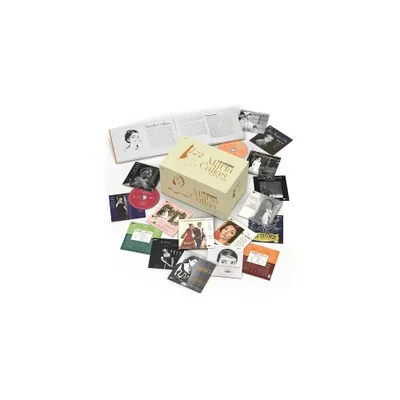Home
Prima Donna: The Psychology of Maria Callas
Loading Inventory...
Barnes and Noble
Prima Donna: The Psychology of Maria Callas
Current price: $44.99


Barnes and Noble
Prima Donna: The Psychology of Maria Callas
Current price: $44.99
Loading Inventory...
Size: Hardcover
*Product Information may vary - to confirm product availability, pricing, and additional information please contact Barnes and Noble
Prima Donna: The Psychology of Maria Callas
explores the psychological mechanisms underlying the hypnotic power of Callas's artistry and the unfolding of her tragic life story. Although precipitated by the trauma and shame that followed her abandonment by Aristotle Onassis and the rapid deterioration of her voice, Callas's midlife disintegration reflects deep psychological vulnerabilities. In this book, Wink utilizes cutting-edge advances in research on developmental psychology and narcissism to shed light on Callas's puzzling personal deterioration during the last nine years of her life. Lacking a cohesive and integrated sense of self, Callas sought affirmation and vitality from adoring audiences and older men including her husband Battista Meneghini and her long-term partner Onassis. The propensity to fuse her identity with stage roles contributed to her artistic greatness, but envy and the lack of an intrinsic sense of meaning and worth intensified her vulnerability to life's vicissitudes.
Prima Donna
is both a powerful study of Callas's life and a contribution to the greater body of work on the psychology of artists.
explores the psychological mechanisms underlying the hypnotic power of Callas's artistry and the unfolding of her tragic life story. Although precipitated by the trauma and shame that followed her abandonment by Aristotle Onassis and the rapid deterioration of her voice, Callas's midlife disintegration reflects deep psychological vulnerabilities. In this book, Wink utilizes cutting-edge advances in research on developmental psychology and narcissism to shed light on Callas's puzzling personal deterioration during the last nine years of her life. Lacking a cohesive and integrated sense of self, Callas sought affirmation and vitality from adoring audiences and older men including her husband Battista Meneghini and her long-term partner Onassis. The propensity to fuse her identity with stage roles contributed to her artistic greatness, but envy and the lack of an intrinsic sense of meaning and worth intensified her vulnerability to life's vicissitudes.
Prima Donna
is both a powerful study of Callas's life and a contribution to the greater body of work on the psychology of artists.


















